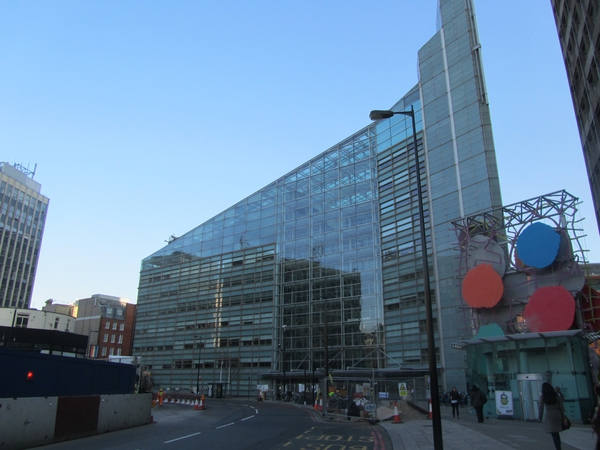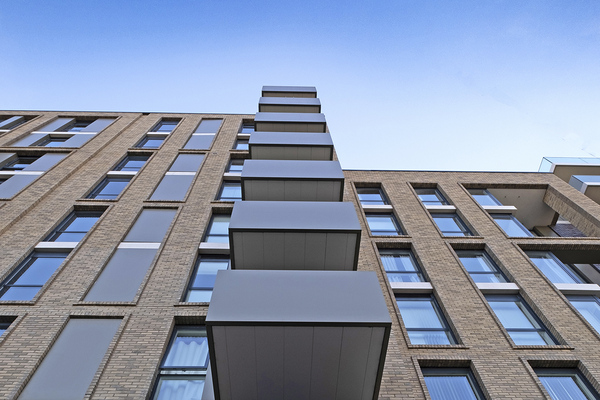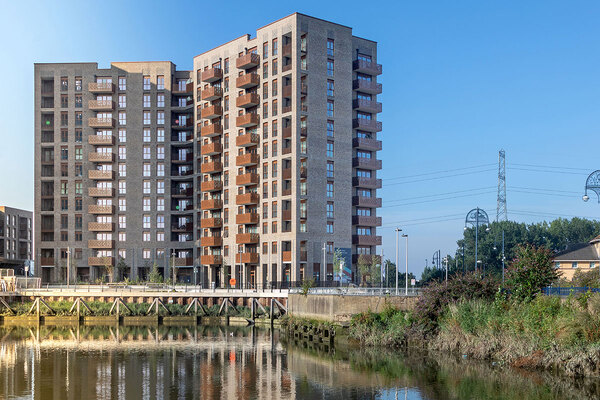You are viewing 1 of your 1 free articles
Exclusive: end of convergence and rent caps risks making 300,000 social homes financially unsustainable
London’s largest landlords have warned that the end of rent convergence and a lack of a long-term rent settlement is putting 300,000 social homes at risk of becoming financially unsustainable, Inside Housing can reveal.
An exclusive analysis of rents by Hyde on behalf of the G15 group, shared with Inside Housing, found that more than half (57%) of social homes managed by London’s largest landlords have now diverged away from the formula rent.
This equates to almost 300,000 homes managed by landlords where rents have not converged to formula rent. Over the next decade, this will mean G15 members miss out on £2bn of resources.
In the long term, this growing gap in rents risks making these homes financially unsustainable.
This is because the current rent settlement does not cover the full cost of maintaining and investing in social housing. This is met by other activities carried out by landlords, such as building new homes and generating income elsewhere, and borrowing.
Inside Housing understands that without rents being put on a more sustainable path, providers will likely face a deeply regrettable choice about when they may be forced to sell some homes in order to protect their ability to continue providing much needed social homes.
The policy of rent convergence was introduced in 2002 by the Labour government and was abandoned by the coalition government in 2015.
Under Labour, a rent formula was established with rents moving towards a formula which took account of property values and local earnings relative to the national picture.
The loss of £2.1bn of investment into social housing comes at a time when landlords are spending billions more to tackle repairs and building safety.
The G15 has estimated that its members are forecasting to spend £3.6bn on building safety works from 2021 to 2036 to fix approximately 4,208 buildings.
Meanwhile, the Regulator of Social Housing revealed in 2023 that between 1% and 2% of social homes – up to 80,000 homes – are estimated to have serious damp and mould problems.
Following that study, a cost-benefit analysis by the Building Research Establishment estimated that remedial work to England’s poorest housing could provide £135.5bn in societal benefits over the next 30 years due to savings in areas like the NHS and lower energy bills.
On net zero 2050 targets, the National Housing Federation and Savills estimated that it will cost a further £36bn to meet, in addition to the £70bn landlords are already planning to spend on upgrades to the homes they provide.
Alongside the money lost due to the end of rent convergence, the analysis found that the largest landlords in London alone lost £6.6bn by 2024 as a result of the 1% annual rent cap that lasted from 2016 to 2020, and the more recent 7% limit set last year.
These lost resources could have levered in £40-50bn of new investment in the sector at a time when the Levelling Up, Housing and Communities Committee inquiry reported last week that the sector is “under serious financial pressure”.
This lack of convergence is costing the largest social landlords in London varying amounts of money.
Hyde is missing £8.4m a year from homes diverging from formula rent. Money that is needed to maintain and improve its existing homes where it plans to spend £240m a year over the next five years – a rise of almost a third since 2022.
Andy Hulme, chief executive of Hyde, said: “The evidence is clear: scrapping rent convergence has sucked resources away from social housing providers being able to invest in customers’ homes.
“With more than half of homes not meeting the formula rent, in the long run they become unsustainable for social housing charities to continue providing. We simply have to avoid this happening.
“We understand government wants us to improve people’s homes as much as we do. This makes it difficult to understand why we aren’t able to make social rents fairer and generate more resources to invest in improving people’s homes to the right standards.”
At the same time, the majority of customers in homes that have not converged to formula rent are paying more than £10 a week less than a customer for a similar home.
In total, 45% of households living in homes provided by G15 landlords where rent has not converged are paying more than £10 a week less than formula rent – a total of 134,292 households.
More than a quarter of customers (27%) living in homes where rent has diverged are paying between £4 and £6 less than formula rent – a total of 81,774 households. More than one in 10 (11%) are paying between £6 and £8 less than formula rent, which equates to 33,453 households.
Across the G15 group, landlords have £402.87 less to invest per social rented home per year than if rent convergence had not been scrapped.
The scrapping of convergence also means that G15 landlords are missing between £5.3m and £52.9m a year in rent alone.
Fiona Fletcher-Smith, chair of the G15 and chief executive of L&Q, said: “Scrapping rent convergence undermines the purpose of social housing because it introduces more inequality into the system.
“We need to see a long-term plan for affordable housing from government, which includes greater certainty on rent policy with the reintroduction of convergence.
“This would give both providers more certainty to plan spending, and secure external investment, as well as giving customers more clarity on the future of the rents they pay, which will rightly remain far below market rates.”
The Department for Levelling Up, Housing and Communities said: “Our social housing rent policy strikes a balance between protecting tenants from high costs and ensuring that providers can invest in new and existing social housing. We will consult on future social housing rent policy in due course.”
Sign up for our development and finance newsletter
Already have an account? Click here to manage your newsletters












